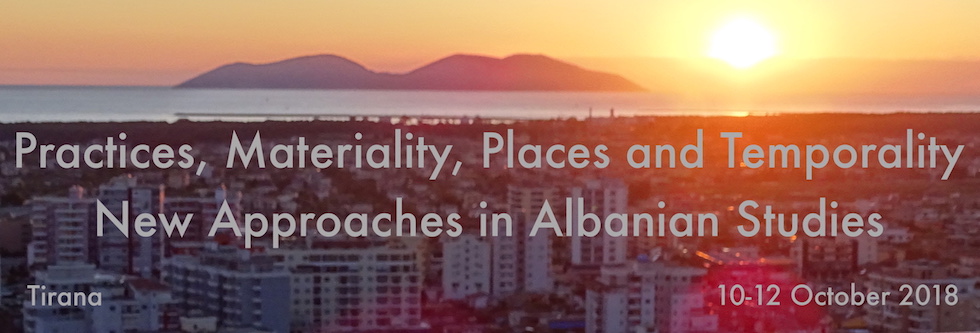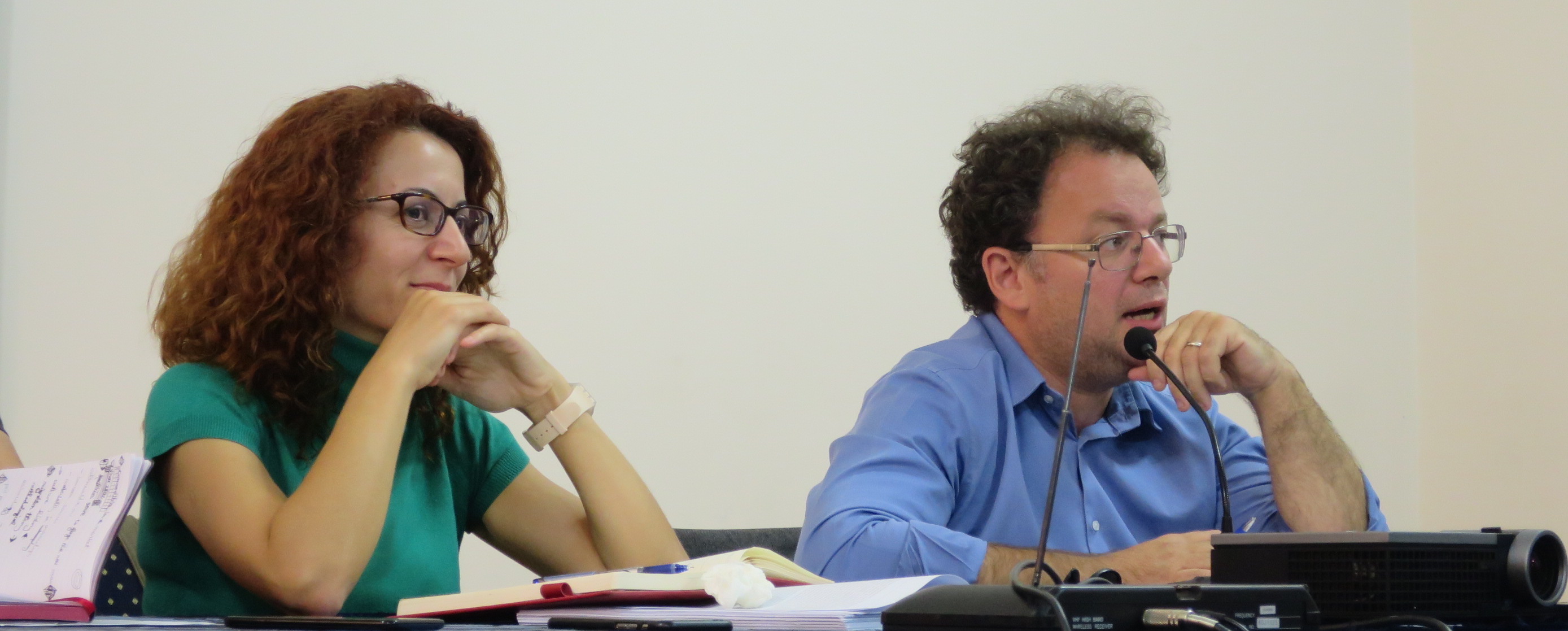
Roundtables
In order to have a collective discussion rather than a collection of individual papers, the discussion focused on two questions in each roundtable, to which all participants in the roundtable were invited to give a written answer well in advance. Those answers were circulated among participants prior to the conference. On the day of the conference, at the beginning of each roundtable, participants presented in 5 minutes the main argument of their contribution. A general discussion followed, between contributors to the roundtable and other participants in the conference. Roundtable 1. Albanian studies during the last 20 years: a change of paradigm? Moderator: Nathalie Clayer Contributors: Victor Friedman, Mikaela Minga, Lura Pollozhani — According to you, has there been a change of paradigm in your field of studies? — Has your own research been affected by this change? Roundtable 2. Interdisciplinary research in the Albanian context Moderator: Robert Pichler Contributors: Gianfranco Bria, Bledar Kondi, François Lerin, Mentor Mustafa, Saimir Shpuza — What does it mean to study materialities, practices and places within an interdisciplinary framework? — How do you assess your own interdisciplinary experience? Roundtable 3. Communist and post-communist studies: their impact on Albanian studies and perspectives from communist and post-communist Albania Moderator: Enriketa Pandelejmoni Contributors: Idrit Idrizi, Ermir Hoxha, Dorian Koçi, Elidor Mëhilli, Eckehard Pistrick — How has your field of research been affected by communist and post-communist studies? — What models, paradigms and comparative framework related to communist and post-communist studies can we use to explore materialities, spaces and practices in the Albanian context? Roundtable 4. Albanian studies within area studies: locating Albanian studies in the (post-)Ottoman, European and Mediterranean studies Moderator: Armanda Hysa Contributors: Konrad Clewing; Markenc Lorenci, Joachim Matzinger, Enis Sulstarova — What are the advantages and limits of considering Albanian studies in relation to Ottoman and post-Ottoman studies, Mediterranean studies, European studies? —How do you use the change of focal and scale in your own research?
Roundtable 5. The “material turn” and Albanian studies Moderator: Esmeralda Agolli Contributors: Claire Bernard-Mongin, Arsim Canolli, Emily Glass, Smoki Musaraj, Visar Nonaj — What is your assessment of the ‘material turn’ in your field of studies? — How do you approach ‘materiality’ in your own work? Roundtable 6. The “visual turn” and Albanian studies Moderator: Olsi Lelaj Contributors: Gilles de Rapper, Agata Fijalkowski, Ana Grgic, Zef Paci, Irida Vorpsi — What is your assessment of the ‘visual turn’ in your field of studies? — How do you approach ‘visuality’ in your own work? Roundtable 7. The “spatial turn” and Albanian studies Moderator: Gentiana Kera Contributors: Nathalie Clayer, Denis Ermolin, Juli Vullnetari — What is your assessment of the ‘spatial turn’ in your field of studies? — How do you approach space in your own work? Roundtable 8. The “temporal turn” and Albanian studies Moderator: Nataša Gregorič Bon Contributors: Nebi Bardhoshi, Cecilie Endresen, Bledar Kondi, Eli Krasniqi, Shemsi Krasniqi — What is your assessment of the ‘temporal turn’ in your field of studies? — How do you approach ‘temporality’ in your own work?
|



